"We will never forget our immortal martyrs," sang hundreds of voices in Kathmandu's biggest public park, marking the end of an era as Nepal's 239-year monarchy
KATHMANDU: "We will never forget our immortal martyrs," sang hundreds of voices in Kathmandu's biggest public park, marking the end of an era as Nepal's 239-year monarchy gave way to a federal democracy with the birth of the world's newest republic.
"We have been awaiting this day for years," said Radha Gyawali, newly sworn in member of the historic constituent assembly, whose Communist Party of Nepal-Unified Marxist Leninist had in the past spearheaded a signature campaign against the members of the royal family who committed excesses.
Though Nepal would officially become a republic after Wednesday noon, when the newly elected 601-member constituent assembly officially proclaims the monarchy's end, the erstwhile kingdom began celebrating its new-found freedom from Tuesday.
"Long live the republic of Nepal, hail to a new Nepal," thousands cried out in unison in the Tundikhel public square in the capital at a cultural programme organised to remember the people who had laid down their lives in the anti-monarchy protests in 2006 that finally forced King Gyanendra to end his absolute reign of 14 months.
Close to Nepal's Supreme Court, the Nepal Bar Association, which had played a major role in opposing the king's authoritarian rule, also celebrated the dawn of Republic Day with a festival of lights.
"Prime Minister Girija Prasad Koirala will today table a proposal to make Nepal a republic in the constituent assembly and the assembly will endorse it," said Subhash Nembang, speaker of the interim parliament that was dissolved Monday to make way for the assembly.
After the formal proclamation, the message will be officially conveyed to King Gyanendra in the royal palace, following which he will have, at the most, a month's grace period to vacate the Narayanhity, the pink pagoda palace which his father is said to have sold to the government but never handed over.
The government has declared May 28 Republic Day with a three-day national holiday to celebrate the new change as well as prevent untoward incidents.
All government offices, schools and diplomatic missions in Nepal remained closed Wednesday while rallies were taken out through prominent public places, hailing the Republic Day.
Rallies have been banned around the palace and the king's private residence while on Tuesday midnight, additional armed forces were rushed to the palace to prevent possible mob attacks.
With the abolition of the royal throne, Nepal will look for a ceremonial president to replace King Gyanendra as head of state.
Reduced to a commoner, the former omnipotent ruler who had the full backing of the army will now have to pay tax on property, face the wrath of courts if he transgresses against the law, and face the disconnection of water and electricity supplies if he fails to pay his utility bills.
Despite the humiliation, the king has expressed his determination not to leave the country for asylum abroad.
Nepal's diplomatic community said they did not apprehend any confrontational attempts by the king.
"He has kept a low profile and the two messages he issued to the nation before and after the election did not indicate any desire for confrontation," said a diplomat who wished to remain anonymous.
The former Maoist guerrillas, whose 10-year war on the state coupled with the battle of the ballot last month finally succeeded in ousting the monarch, have indicated that the royal family would face no threat to their security or private property though the seven palaces and other inherited wealth would be taken over by the state.
Once the only Hindu kingdom in the world, whose Shah dynasty of kings were considered to be divine and above law, Nepal's throne began crumbling in June 2001, when a midnight massacre in the tightly guarded palace wiped out the then king Birendra, his heir, crown prince Dipendra and eight more members of the royal family, including the queen Aishwarya.
Though initially Dipendra was said to have been the assassin, impelled by a medley of drinks and drugs as well as his animosity towards his parents for their opposition to his fiancée, the Maoists and a sizeable section of Nepal's society have been blaming King Gyanendra for the deed, pointing out that his family gained the most from the massacre.
Never regarded as the rightful king, Gyanendra triggered further resentment when he first strove to manipulate the government soon after ascending the throne and then, in 2005, seized absolute power with the support of the army.
His 14-month rule with the help of a hated coterie saw an escalation in violence as never before and finally, even the international community deserted him.
Royalists hold a special grudge against India, which acted as a mediator between the opposition parties and the Maoists.
The warring forces united to oppose the king together, resulting in a peaceful national uprising in April 2006 that paralysed the kingdom and forced the king to surrender power.
The new government then sheared the all-powerful king of all his powers and privileges, declared Nepal a secular state and finally, last year, suspended the king as head of state.
A historic election last month finally saw an overwhelming verdict against the royal family and the government declared it would formally abolish the crown May 28.
![submenu-img]() Aamir Khan was unsure if censor board would clear Sarfarosh over mentions of Pakistan, ISI: 'If Advani ji can say...'
Aamir Khan was unsure if censor board would clear Sarfarosh over mentions of Pakistan, ISI: 'If Advani ji can say...'![submenu-img]() Gurucharan Singh missing case: Delhi Police questions TMKOC cast and crew, finds out actor's payments were...
Gurucharan Singh missing case: Delhi Police questions TMKOC cast and crew, finds out actor's payments were...![submenu-img]() 'You all are scaring me': Preity Zinta gets uncomfortable after paps follow her, video goes viral
'You all are scaring me': Preity Zinta gets uncomfortable after paps follow her, video goes viral![submenu-img]() Viral video: Influencer dances with gun in broad daylight on highway, UP Police reacts
Viral video: Influencer dances with gun in broad daylight on highway, UP Police reacts![submenu-img]() Family applauds and cheers as woman sends breakup text, viral video will make you laugh
Family applauds and cheers as woman sends breakup text, viral video will make you laugh![submenu-img]() DNA Verified: Is CAA an anti-Muslim law? Centre terms news report as 'misleading'
DNA Verified: Is CAA an anti-Muslim law? Centre terms news report as 'misleading'![submenu-img]() DNA Verified: Lok Sabha Elections 2024 to be held on April 19? Know truth behind viral message
DNA Verified: Lok Sabha Elections 2024 to be held on April 19? Know truth behind viral message![submenu-img]() DNA Verified: Modi govt giving students free laptops under 'One Student One Laptop' scheme? Know truth here
DNA Verified: Modi govt giving students free laptops under 'One Student One Laptop' scheme? Know truth here![submenu-img]() DNA Verified: Shah Rukh Khan denies reports of his role in release of India's naval officers from Qatar
DNA Verified: Shah Rukh Khan denies reports of his role in release of India's naval officers from Qatar![submenu-img]() DNA Verified: Is govt providing Rs 1.6 lakh benefit to girls under PM Ladli Laxmi Yojana? Know truth
DNA Verified: Is govt providing Rs 1.6 lakh benefit to girls under PM Ladli Laxmi Yojana? Know truth![submenu-img]() Mother's Day 2024: Bollywood supermoms who balance motherhood, acting, and run multi-crore businesses
Mother's Day 2024: Bollywood supermoms who balance motherhood, acting, and run multi-crore businesses![submenu-img]() Rocky Aur Rani's Golu aka Anjali Anand shocks fans with drastic weight loss without gym, says fitness secret is...
Rocky Aur Rani's Golu aka Anjali Anand shocks fans with drastic weight loss without gym, says fitness secret is...![submenu-img]() In pics: Ram Charan gets mobbed by fans during his visit to Pithapuram for ‘indirect campaign’ for uncle Pawan Kalyan
In pics: Ram Charan gets mobbed by fans during his visit to Pithapuram for ‘indirect campaign’ for uncle Pawan Kalyan![submenu-img]() Streaming This Week: Yodha, Aavesham, Murder In Mahim, Undekhi season 3, latest OTT releases to binge-watch
Streaming This Week: Yodha, Aavesham, Murder In Mahim, Undekhi season 3, latest OTT releases to binge-watch![submenu-img]() Aamir Khan, Naseeruddin Shah, Sonali Bendre celebrate 25 years of Sarfarosh, attend film's special screening
Aamir Khan, Naseeruddin Shah, Sonali Bendre celebrate 25 years of Sarfarosh, attend film's special screening![submenu-img]() Haryana Political Crisis: Will 3 independent MLAs support withdrawal impact the present Nayab Saini led-BJP government?
Haryana Political Crisis: Will 3 independent MLAs support withdrawal impact the present Nayab Saini led-BJP government?![submenu-img]() DNA Explainer: Why Harvey Weinstein's rape conviction was overturned, will beleaguered Hollywood mogul get out of jail?
DNA Explainer: Why Harvey Weinstein's rape conviction was overturned, will beleaguered Hollywood mogul get out of jail?![submenu-img]() What is inheritance tax?
What is inheritance tax?![submenu-img]() DNA Explainer: What is cloud seeding which is blamed for wreaking havoc in Dubai?
DNA Explainer: What is cloud seeding which is blamed for wreaking havoc in Dubai?![submenu-img]() DNA Explainer: What is Israel's Arrow-3 defence system used to intercept Iran's missile attack?
DNA Explainer: What is Israel's Arrow-3 defence system used to intercept Iran's missile attack?![submenu-img]() Aamir Khan was unsure if censor board would clear Sarfarosh over mentions of Pakistan, ISI: 'If Advani ji can say...'
Aamir Khan was unsure if censor board would clear Sarfarosh over mentions of Pakistan, ISI: 'If Advani ji can say...'![submenu-img]() Gurucharan Singh missing case: Delhi Police questions TMKOC cast and crew, finds out actor's payments were...
Gurucharan Singh missing case: Delhi Police questions TMKOC cast and crew, finds out actor's payments were...![submenu-img]() 'You all are scaring me': Preity Zinta gets uncomfortable after paps follow her, video goes viral
'You all are scaring me': Preity Zinta gets uncomfortable after paps follow her, video goes viral![submenu-img]() First Indian film to be insured was released 25 years ago, earned five times its budget, gave Bollywood three stars
First Indian film to be insured was released 25 years ago, earned five times its budget, gave Bollywood three stars![submenu-img]() Mother’s Day Special: Mom-to-be Richa Chadha talks on motherhood, fixing inequalities for moms in India | Exclusive
Mother’s Day Special: Mom-to-be Richa Chadha talks on motherhood, fixing inequalities for moms in India | Exclusive![submenu-img]() Kolkata Knight Riders become first team to qualify for IPL 2024 playoffs after thumping win over Mumbai Indians
Kolkata Knight Riders become first team to qualify for IPL 2024 playoffs after thumping win over Mumbai Indians![submenu-img]() IPL 2024: This player to lead Delhi Capitals in Rishabh Pant's absence against Royal Challengers Bengaluru
IPL 2024: This player to lead Delhi Capitals in Rishabh Pant's absence against Royal Challengers Bengaluru![submenu-img]() RCB vs DC IPL 2024: Predicted playing XI, live streaming details, weather and pitch report
RCB vs DC IPL 2024: Predicted playing XI, live streaming details, weather and pitch report![submenu-img]() CSK vs RR IPL 2024: Predicted playing XI, live streaming details, weather and pitch report
CSK vs RR IPL 2024: Predicted playing XI, live streaming details, weather and pitch report![submenu-img]() RCB vs DC IPL 2024 Dream11 prediction: Fantasy cricket tips for Royal Challengers Bengaluru vs Delhi Capitals
RCB vs DC IPL 2024 Dream11 prediction: Fantasy cricket tips for Royal Challengers Bengaluru vs Delhi Capitals![submenu-img]() Viral video: Influencer dances with gun in broad daylight on highway, UP Police reacts
Viral video: Influencer dances with gun in broad daylight on highway, UP Police reacts![submenu-img]() Family applauds and cheers as woman sends breakup text, viral video will make you laugh
Family applauds and cheers as woman sends breakup text, viral video will make you laugh![submenu-img]() Man grabs snake mid-lunge before it strikes his face, terrifying video goes viral
Man grabs snake mid-lunge before it strikes his face, terrifying video goes viral![submenu-img]() Viral video: Man wrestles giant python, internet is scared
Viral video: Man wrestles giant python, internet is scared![submenu-img]() Viral video: Delhi University girls' sizzling dance to Haryanvi song sets the internet ablaze
Viral video: Delhi University girls' sizzling dance to Haryanvi song sets the internet ablaze
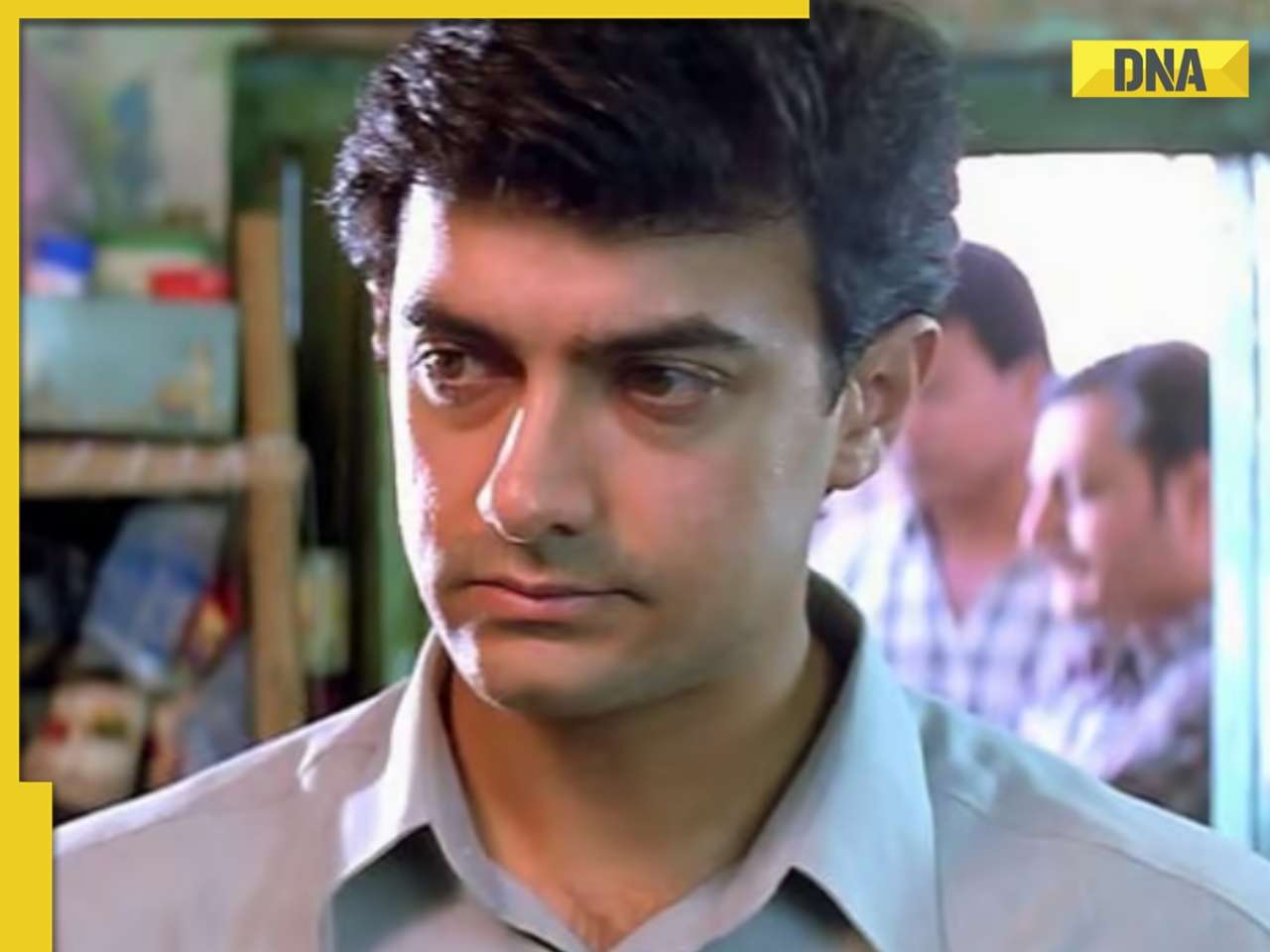
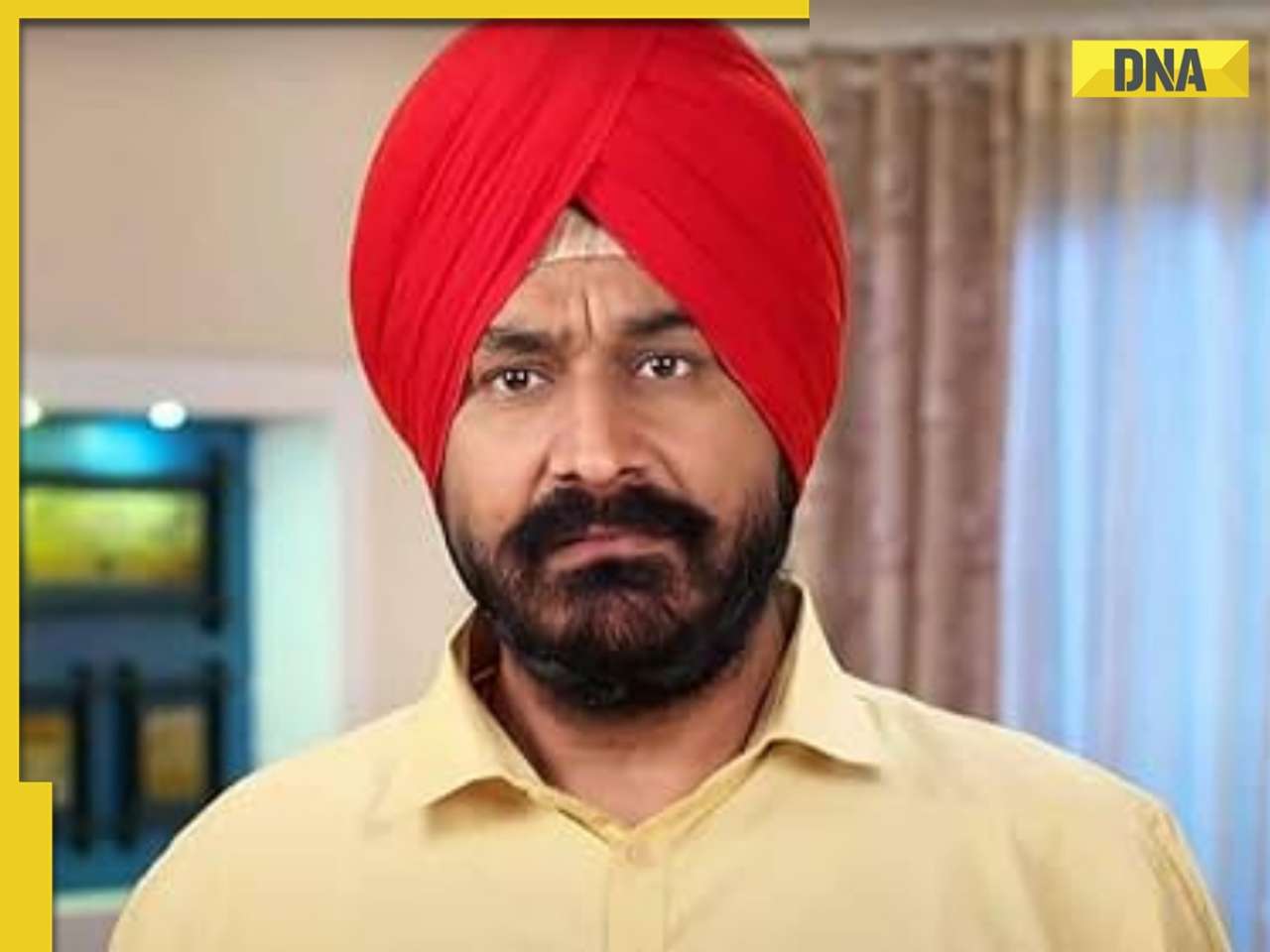
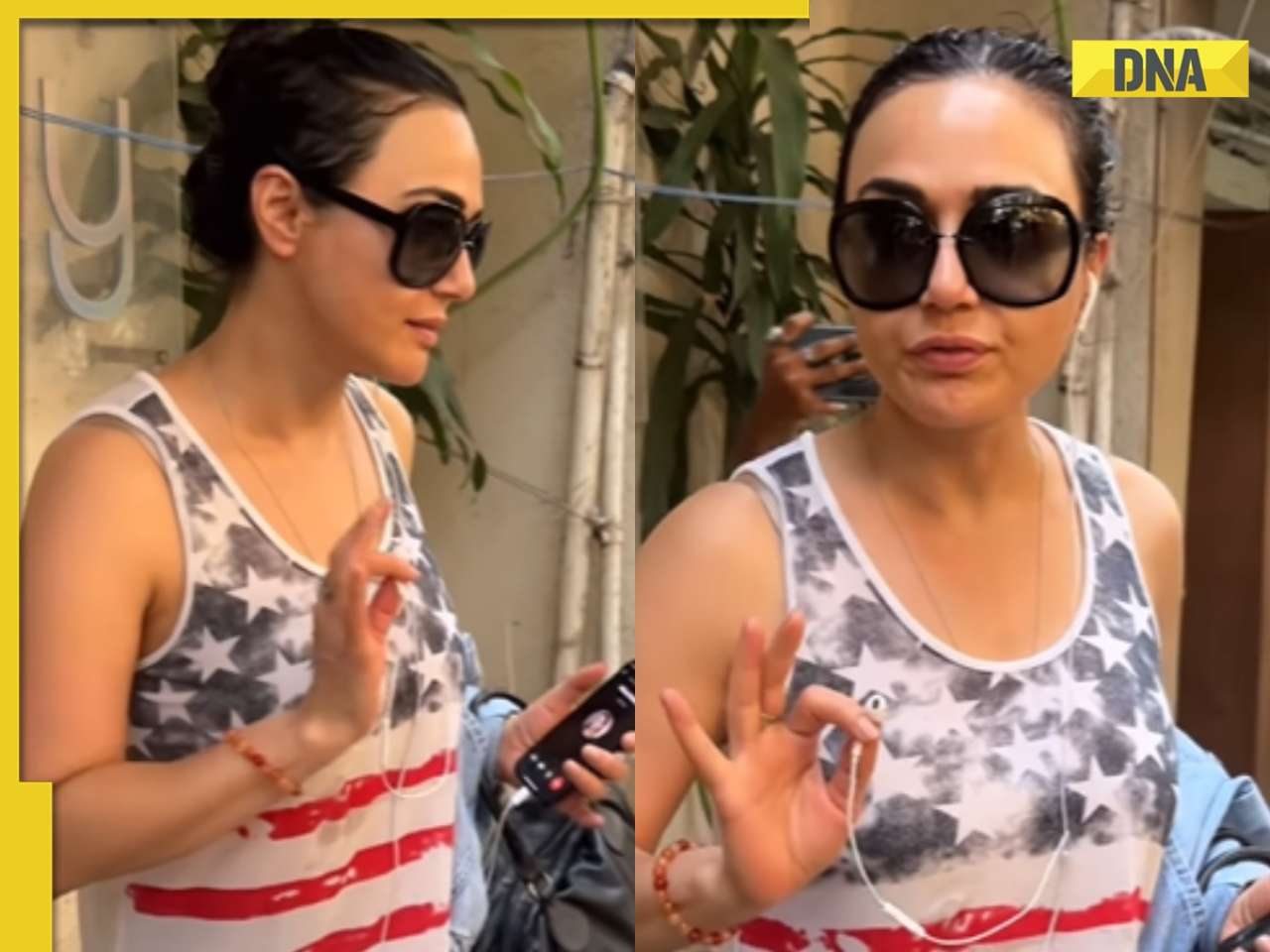




















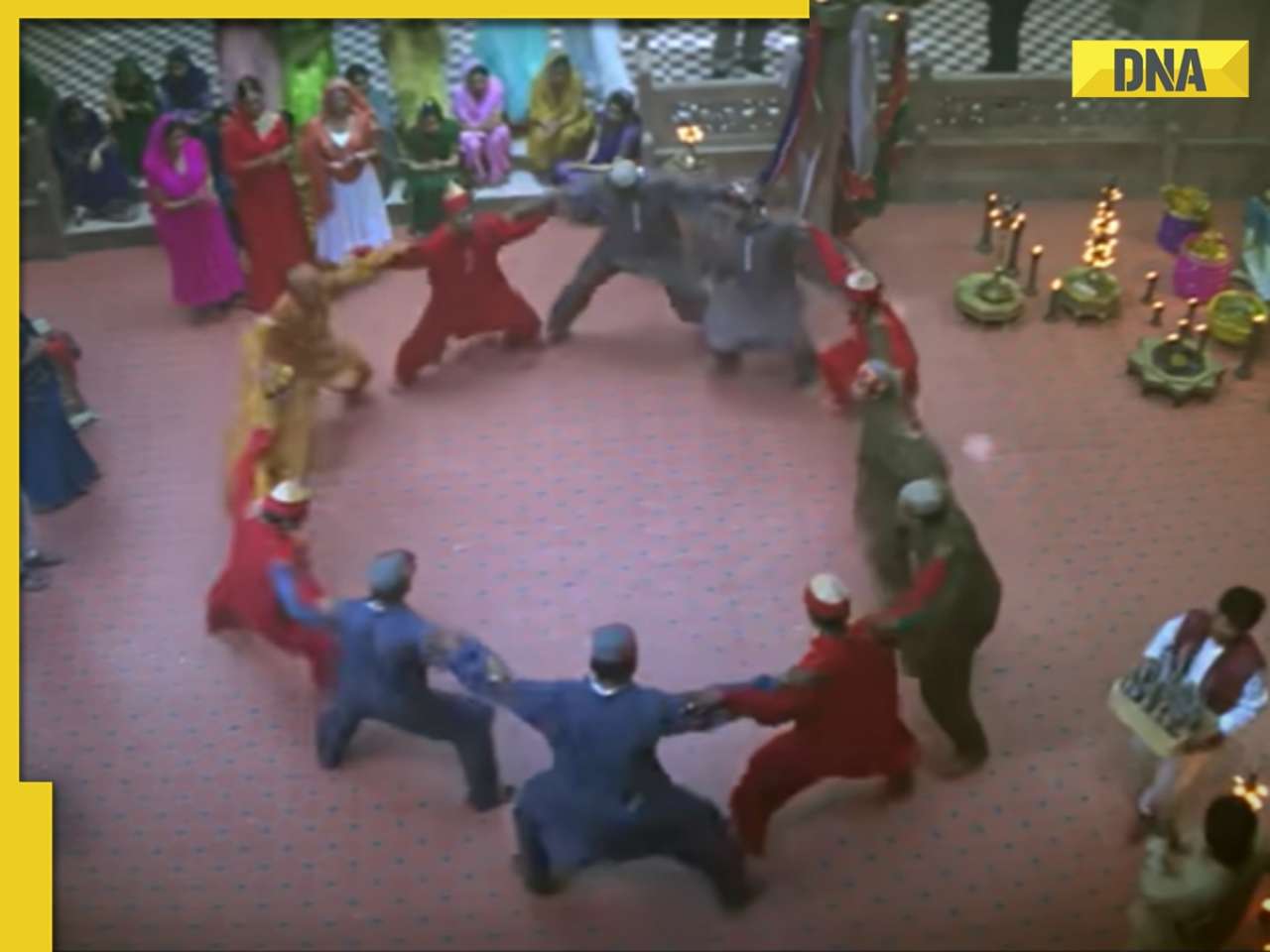

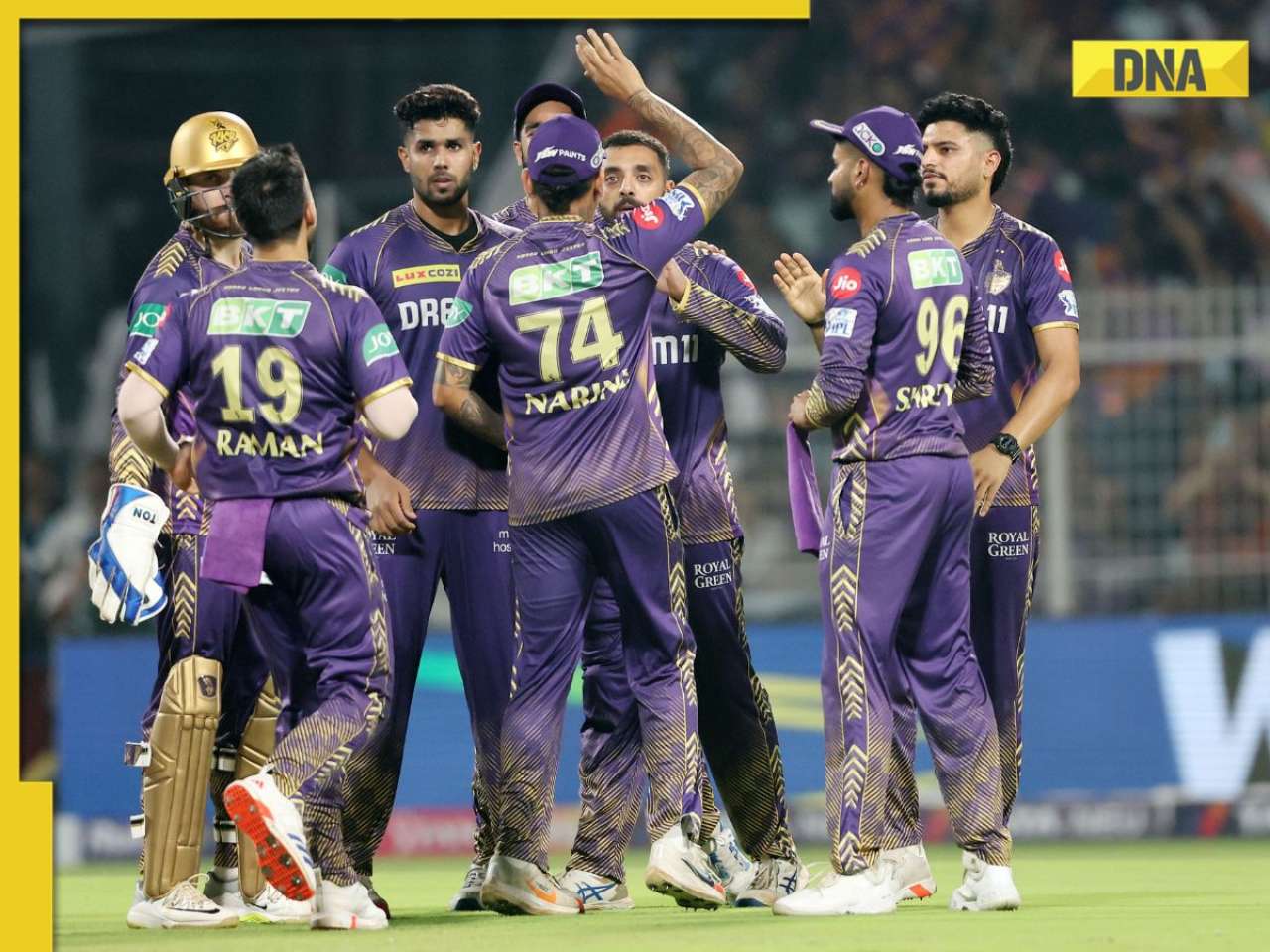
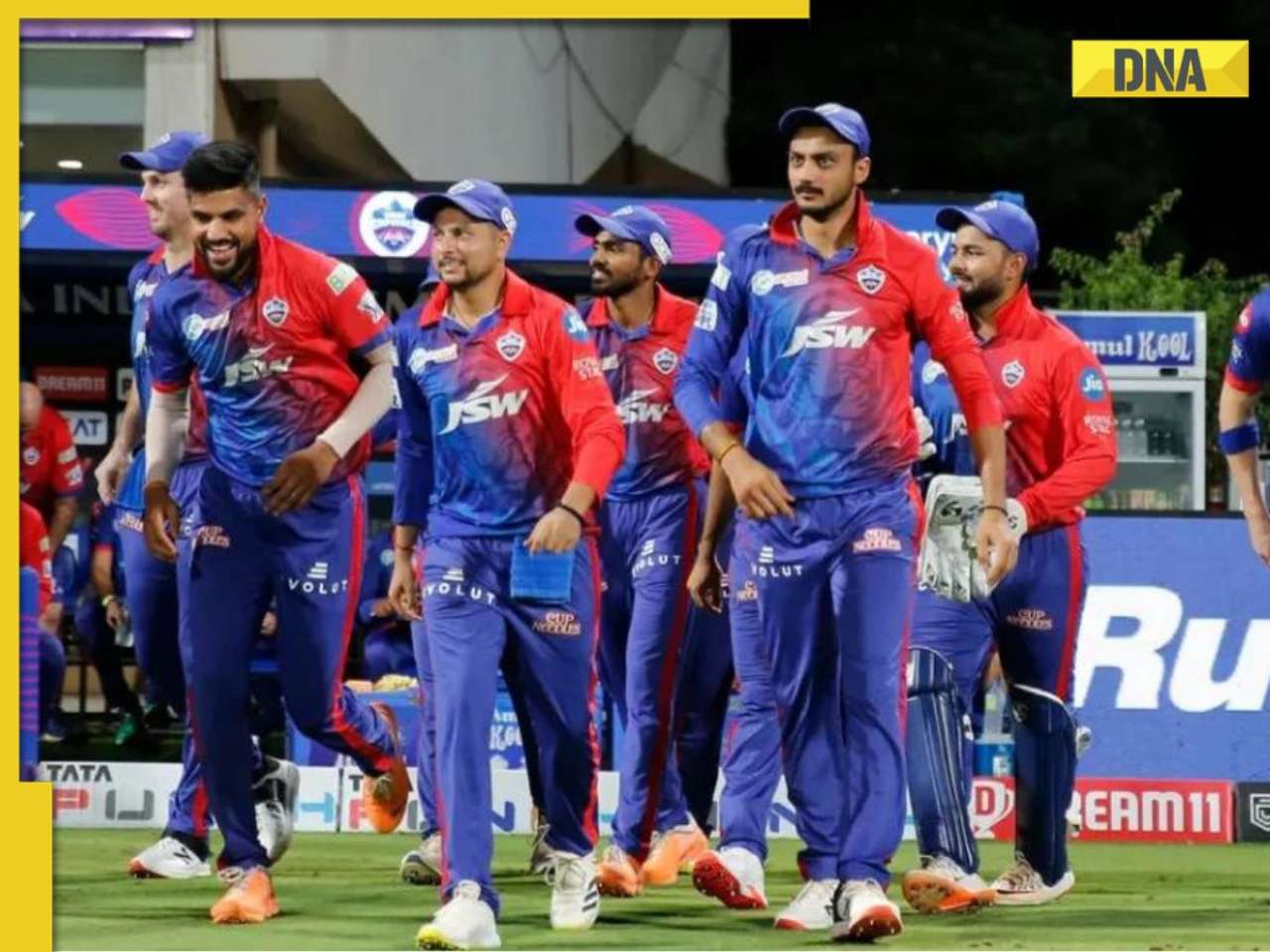

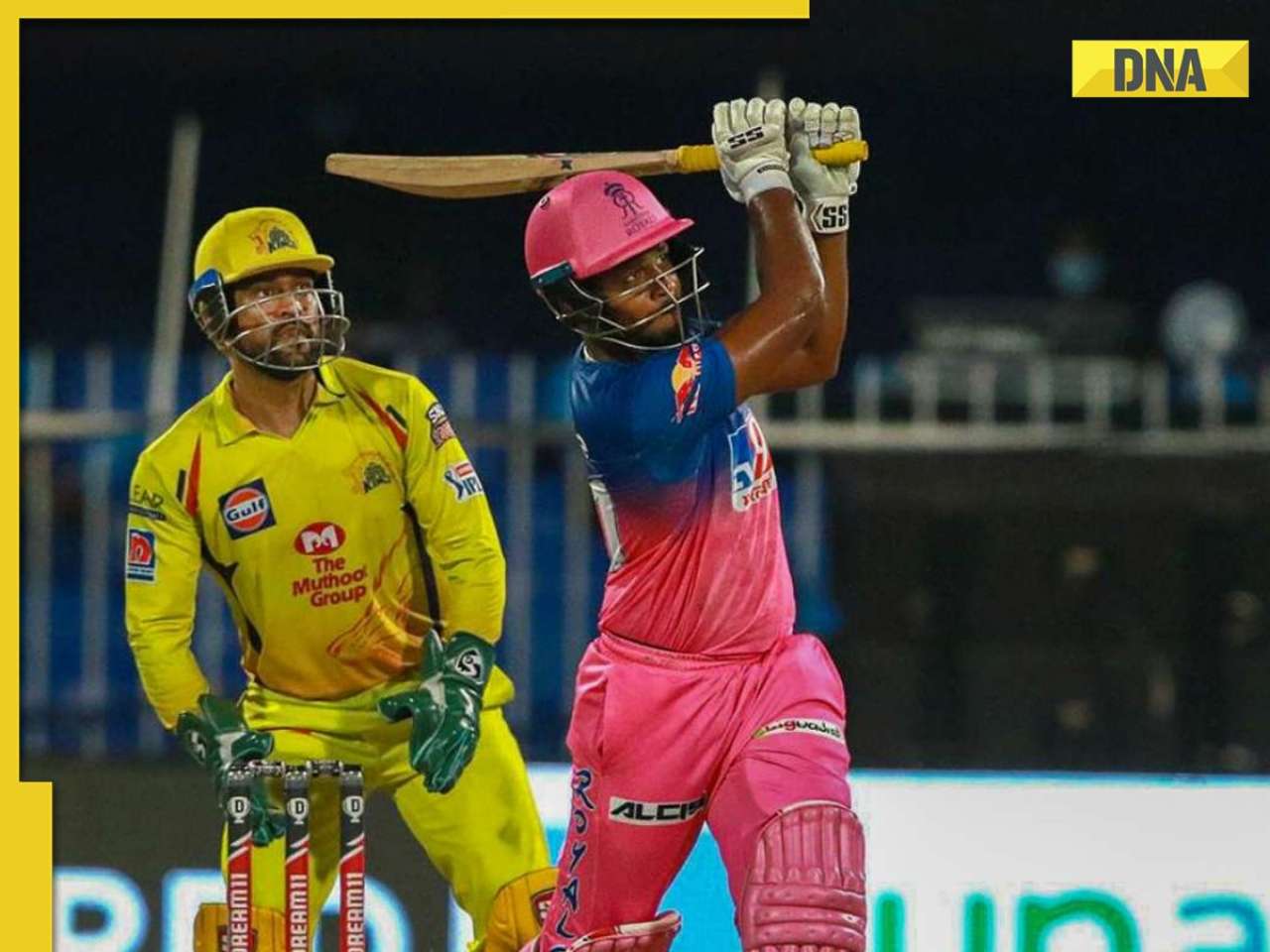







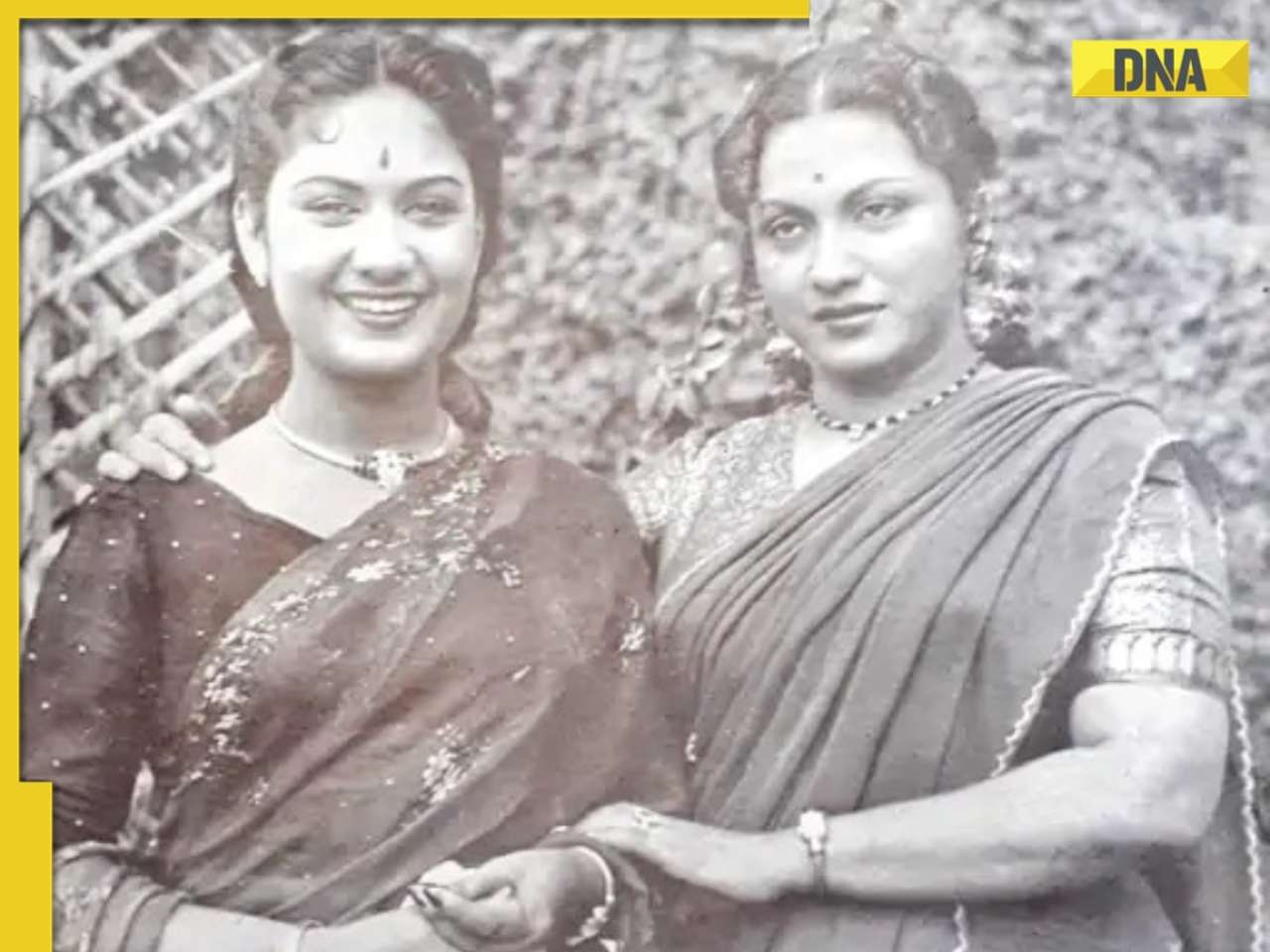
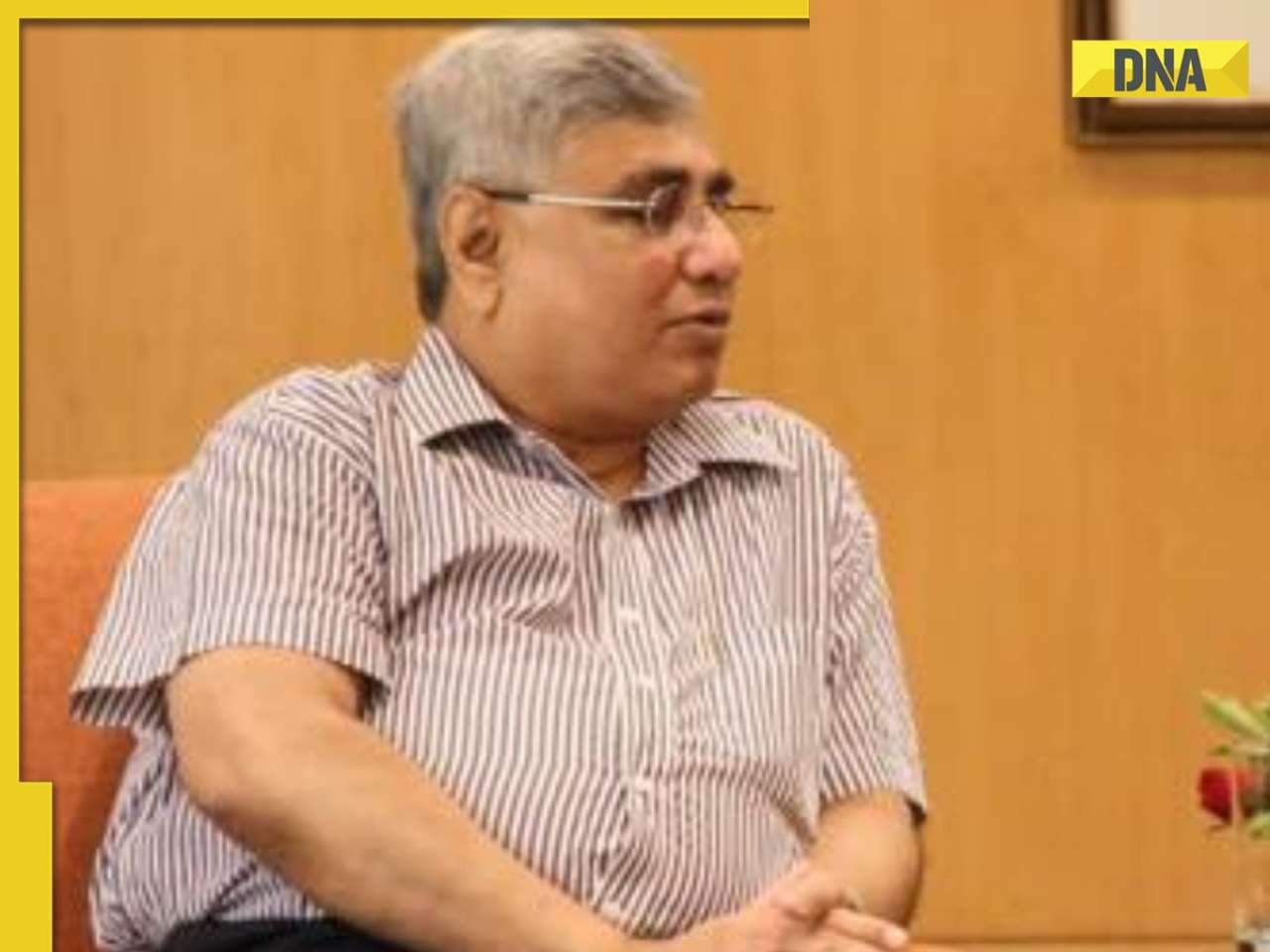















)
)
)
)
)
)